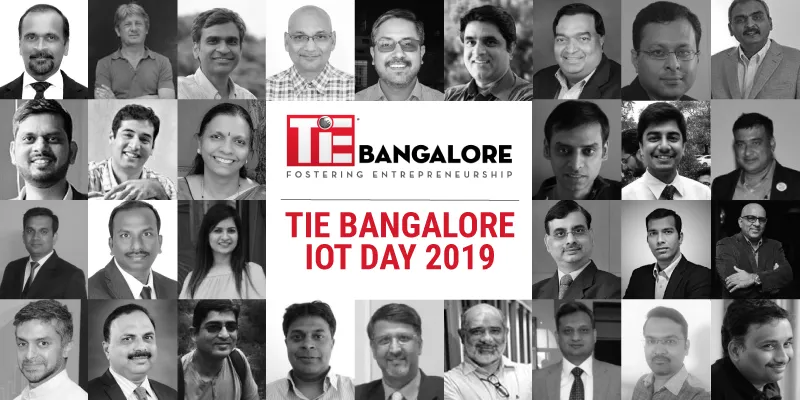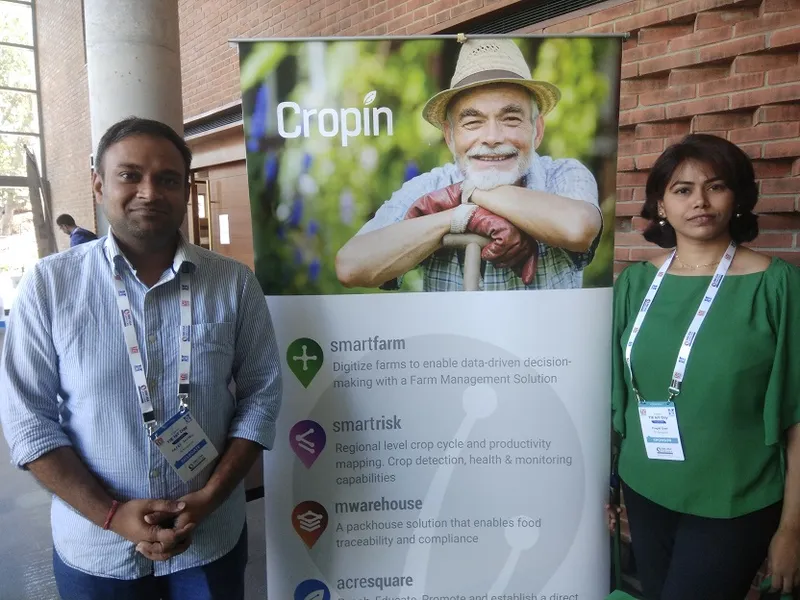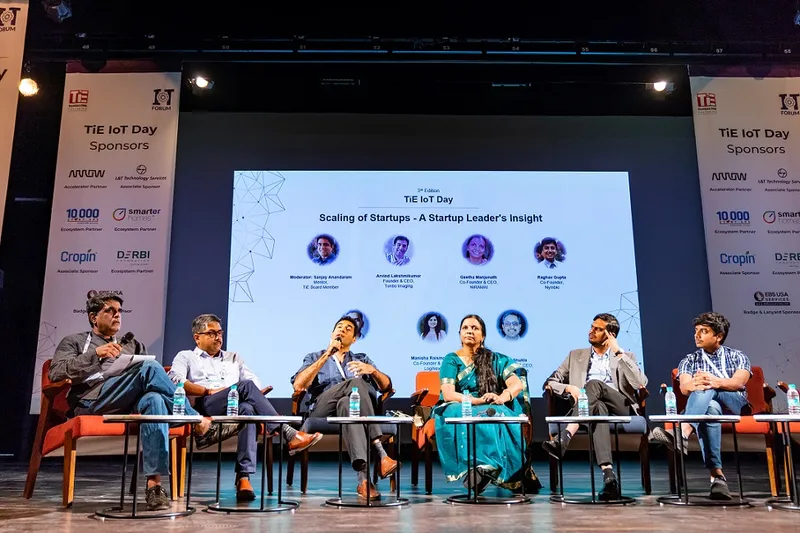Prototype, product, profit: how these startups scaled up for market success
Five founders share insights on the challenges met and balances struck on the way to scale stage.
In addition to keynote addresses and workshops, the third edition of TiE Bangalore’s annual IoT Day conference featured a panel titled ‘Scaling Startups’. Moderated by TiE Bangalore board member and mentor Sanjay Anandaram, the panel included founders of the following startups: CropIn (Krishna Kumar), Tonbo Imaging (Arvind Lakshmikumar), Niramai (Geetha Manjunath), Nymble (Raghav Gupta), and SmarterHomes Technologies (Vivek Shukla).

According to Arvind Tiwari, Chair of the TiE IoT Forum, India now has over 1,500 IoT startups. Later this year, the forum is planning day-long events like Agri-tech Day, Industrial IoT Day, and Open Source IoT day to deepen and scale up the startup ecosystem. “We are also planning partner activities in Hyderabad, Ahmedabad and Pune,” he added.
Here are my key takeaways from the panel on startup scaling, framed as eight questions for which there are multiple possible options. See also YourStory’s earlier coverage of IoT activities by TiE Bangalore: IoT SIG, IoT Next Summit, IoT startup showcase, SMAC Day, IESA Vision Summit, and Smart Mobility.
1. Fresh out of college – or mid-career?
Founders can launch their ventures fresh out of college, or mid-career after a corporate stint. Work experience leads to business insights, corporate contacts, and monetary savings to launch a startup. But baggage of EMIs and fear of losing out on a habituated stable paycheck do not factor in for founders fresh out of college, according to Raghav of Nymble. The startup makes robotic arms for cooking in residences and establishments, and is an Elevate 100 winner.
2. Pilots – free or fee?
In early stages, founders are eager to demonstrate proof of concept, and may do some pilot projects for free. Ag-tech startup CropIn’s first customer asked for a free pilot, and gave only a certificate for successful implementation. This was not seen as sustainable, so the startup decided not to go in for free pilots any more.
3. Revenue – or relationships?
Even in cases where a fee or price is charged for products, there are times when the deal may not be so lucrative, but the potential for further deals or reference value is high. Deals have also been made for the sake of relationships and not just revenue, in the case of sensor systems startup Tonbo Imaging; these can be emotional decisions. Social enterprises may need to charge according to income of the customer or purchasing power.
4. Focus or diversify?
Another challenge faced by founders is figuring out what kinds of deals to strike. CropIn decided to take on further customer orders only if they were in line with the product vision and roadmap. Even though there can be good money on the table in the short run, taking on new domains were seen as distracting in the long run.
On the other hand, Niramai started off with breast cancer screening solutions, but has also taken on a project for the Bill and Melinda Gates Foundation to tackle river blindness. Though they seem to be two different areas, the underlying technology can be applied to both domains.
5. Product or pamphlet first?
Product design and customer development generally need to go hand in hand. Some startups come up with a product first, then marketing collaterals such as brochures and pamphlets. However, flipping the order can be a useful growth hack in terms of getting customers and assessing market need. SmarterHomes came up with the pamphlet for its water meters first, and product later.

6. Domain experts or customers?
While domain expertise is certainly important for product design and rollout, customers are also important sources of insights for new product features. CropIn received feedback from its customers that text on screens is not easily readable in conditions of glare from bright sunshine. It responded by including more large icons in its screen designs. Faith in data insights is key for scale-stage startups.
7. Revenue or recruitment?
It is tempting for founders to stay focused on product and revenue, and leave people issues to HR professionals. But the founder also needs to be actively involved in order to recruit key talent. The founder’s job is to get the best people who are devoted to the vision and mission of the startup across its various stages of growth, according to Krishna of CropIn.
Nymble looks for employees for whom money is not the only motivation. Equity is given to employees in proportion to the salary cut they take while moving from a big firm to the startup.
8. Solo or partners?
Many startups tend to venture into the market alone, whereas others line up a mix of business partners. Niramai has scaled up by finding the right partners and channels, such as NGOs who conduct health camps in rural areas.
For more insights on scale-stage frameworks for startups, see our reviews of the related books Lean Impact, Startup Leadership, Blitzscaling, Straight Talk for Startups, Shortcut your Startup, Product Leadership, and Master Growth Hacking.

Panel: Scaling Startups
Also read: AI healthcare startup Niramai raises $6M Series A funding led by Dream Incubator







